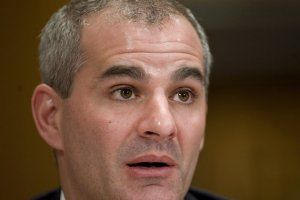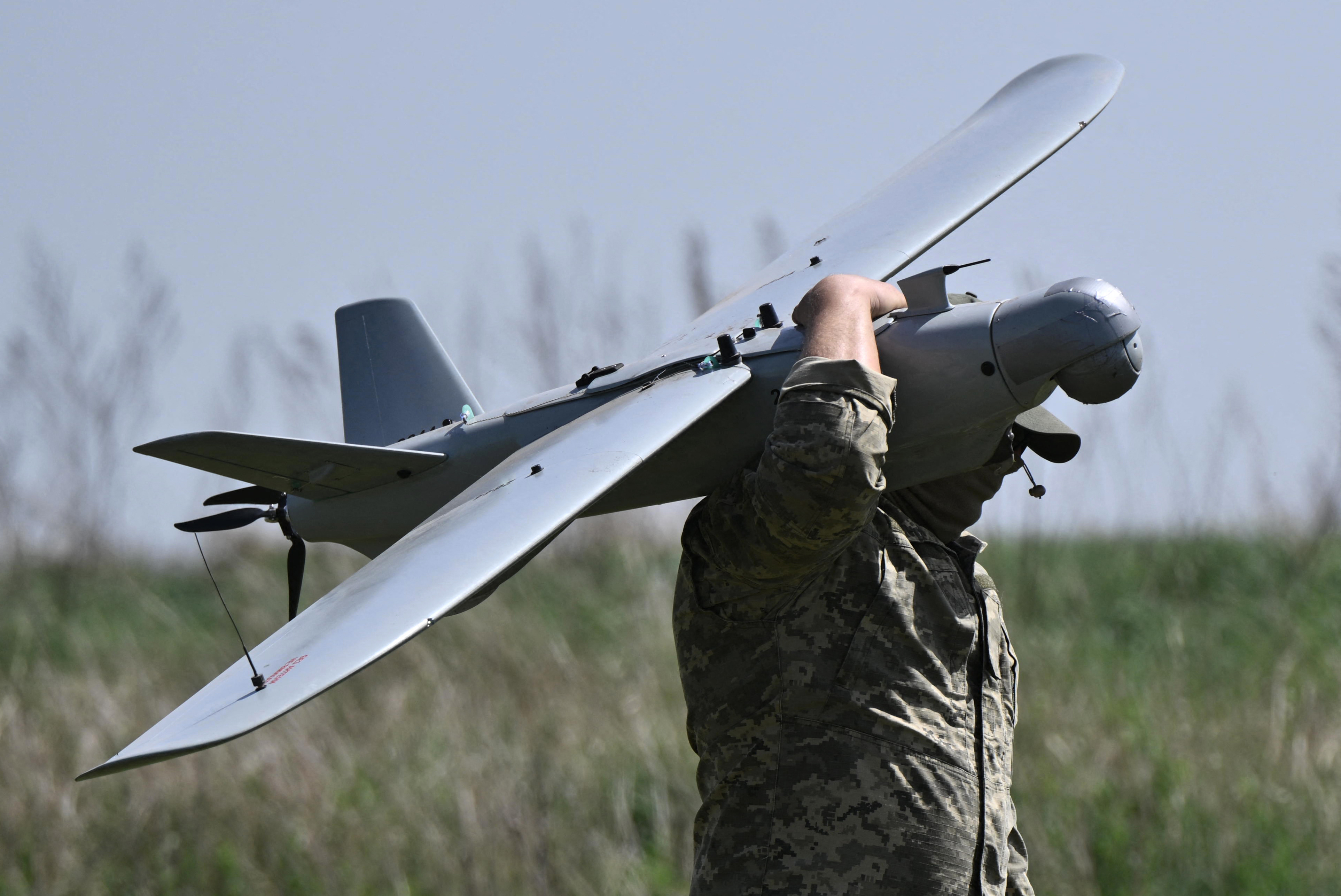
The tension between counterterrorism and civil liberties was on display again this week when the American Civil Liberties Union sued the federal government over its no-fly list, which is intended to stop potential terrorists from boarding airplanes entering U.S. airspace. In a rare public interview earlier in the week, Michael Leiter, director of the National Counterterrorism Center (NCTC), said, "These are tough issues that require a full and open debate. Leiter discussed the latest debate over the war in Afghanistan, the targeting of U.S. citizens for assassination, and more in a discussion with NEWSWEEK's Michael Isikoff at the Aspen Security Forum. Excerpts:
Isikoff: Let's get a sense of what the overall threat picture looks like right now. [White House chief of staff] Rahm Emanuel said [recently] that about half of Al Qaeda has been eliminated in the last 18 months. How many people is that, and how many people are left in the other half?
Leiter: I think [CIA director] Leon Panetta said on Sunday, and I agree with him, that in Afghanistan, you have a certain number, a relatively small number, 50 to 100. I think we have in Pakistan a larger number.
How many?
Upwards—more than 300, I would say. And I think the key has been not going after every foot soldier—although that can be very important. … but more critically … trying to decimate Al Qaeda's leadership ranks. I think we've had a lot of success there. Clearly, the death of Al Qaeda's No. 3, not long ago, Sheik Saeed [al-Masri] is meaningful. But I readily admit this is not going to be a war won by body counts. Body counts and taking out leadership is a part of it but there are many, many other elements of this, ranging from effective aviation screening to … trying to counter the ideology that is spawning this.
Isn't it true that in almost every one of the big cases where there's been attempted attacks on the U.S., the individuals involved—Faisal Shahzad, Najibullah Zazi—have said they were motivated to go abroad to learn how to attack the United States by the [military] actions we are taking now in Afghanistan and in Pakistan to try to defeat Al Qaeda there?
Well I certainly will not try to argue that some of our actions have not led to some people being radicalized. I think that's a given … That doesn't mean you don't do it. That means you craft a fuller strategy to explain why you're doing that and try to minimize the likelihood that individuals are going to be radicalized.
President Bush used to say that Iraq is the central front in the War on Terror. Is Afghanistan the central front in the War on Terror today?
I think against Al Qaeda senior leadership, Afghanistan and Pakistan, and I'm not going to use them interchangeably but they're such an interconnected front that that is the central front against Al Qaeda senior leadership.
Obviously there's a great deal of debate on U.S. policy in Afghanistan right now ... How big of a setback would it be for your efforts against Al Qaeda and terrorism and its associates, if the United States began a substantial withdrawal from Afghanistan?
From a counterterrorism perspective it is clear that Al Qaeda senior leadership wants a safe haven and needs a safe haven. It needs that to recruit individuals, it needs it to train them, it needs it to organize, and it needs it to deploy them. That's what they did in the case of Najibullah Zazi. He went to Pakistan, he trained with them, he deployed and tried to attack the United States. Were Afghanistan to allow … Al Qaeda to come into Afghanistan, that clearly gives Al Qaeda a freedom of movement that would be extremely problematic.
Christmas Day. Obviously you were in the middle of a great deal of political debate about the failures of intelligence that allowed Omar Farouk Abdulmutallab to almost set off the bomb on the plane to Detroit. The Senate Intelligence Committee recently did a report reviewing what happened there and they found that there were systemic failures across the intelligence community which contributed to the failure to identify the threat posed by Abdulmutallab. Specifically, the committee wrote that your organization was not organized adequately to fulfill its mission and failed to connect the reporting on Abdulmutallab. What went wrong?
We clearly didn't perform the way we wanted to and we hope to. There's been an incredible amount of not just soul searching, but effort to change the things that went wrong since then. … But I have to say it is not just an intelligence challenge. … [The failures were] in part driven by the pre-12/25 policy decisions about how we should or should not affect people's civil liberties in terms of boarding an aircraft.
Explain that. What policy decisions are you referring to?
We knew before 12/25 that Abdulmutallab was a known or suspected terrorist. His name was entered into a database that NCTC has called the Terrorist Identities Datamart Environment. What did not occur was again, not all of the intelligence was connected regarding him, so he was not placed in no-fly status. … The policy decision underlying that was the degree of intelligence required to put someone on the no-fly list. And the standards that we had set up previous to 12/25 were such that more intelligence was required. … And that's one of the policies that has changed subsequent to 12/25.
And what is the threshold now for getting on the no-fly list?
The threshold is not an entirely public one so I can't discuss it but I will say it's a lower threshold….
(Editor's note: Just this week, the American Civil Liberties Union sued the government, saying the no-fly list violates Constitutional rights.)
The Christmas Day incident brought a lot of attention on a Yemeni cleric, Anwar al-Awlaki, who is said to have encouraged and inspired Abdulmutallab in his attempted attack. How much of an operational role did Awlaki play in that attempted attack and how much of an operational role does he play today in Al Qaeda in Yemen?
We assess that Awlaki had a direct operational role.
Directed him to blow up the airplane?
I'm not going to go into greater detail.
It's been widely reported that Awlaki is on the CIA's hit list. CIA director Panetta all but confirmed that when he said, "[Awlaki]'s a terrorist, we're going to consider and we're going to treat him as a terrorist." He's also a U.S. citizen. Does it give anybody pause in the upper ranks of the Obama administration that we are targeting U.S. citizens …when they haven't even been charged with a crime?
I think, without speaking directly to the case of Awlaki, I think it certainly gives me pause. … I'm quite confident it gives President Obama pause. … Anyone who is involved in life and death decisions, it gives them pause in issuing orders or directives to go out and end an individual's life. … But I don't believe that being a U.S. person is dispositive of what the U.S. government should do in terms of self defense.
But what is the standard that you use for targeting a U.S. citizen [who has not been charged with a crime] and what is the decision-making process for targeting that individual?
Just to be clear, the U.S. government through the Department of Defense goes out and attempts to target and kill people, a lot of people, who haven't been indicted.
When the Bush administration declared Jose Padilla, a U.S. citizen, an enemy combatant, stripped him of all his legal rights, and threw him in a military brig, there was an enormous outcry from the civil liberties community. Here, the Obama administration is going one better than that; they're saying, "We can kill this guy. We can take him out." And there's been very little public debate about how that decision was made. Doesn't the government at least owe a [fuller] explanation of how it's reaching these decisions?
I absolutely agree with you. These are tough issues that require a full and open debate. That may not mean there's a full and open debate about an individual … because there are sensitive sources and methods involved. But certainly, the policy decisions about the ways in which we should or should not use force demand a full and open discussion. And again, I think it's part of my appearance, here, I'm trying to answer the questions to the extent I can. … But I will tell you from my perspective as director of the National Counterterrorism Center, if someone like Anwar al-Awlaki is responsible for part of an operation to kill more than 300 people over the city of Detroit, I think it would be wholly irresponsible … not to at least think about and potentially direct all elements of national power to try to defend the American people.
.
There were riots last year among the Uighurs in China. 156 people were killed, and the Chinese government said that these riots were inspired and encouraged by Rebiya Kadeer, a Uighur dissident who lives in Northern Virginia. They call Kadeer a terrorist and say that she's leading to violence and murder of its citizens. If the Chinese government were to apply the same logic and lodge a missile strike against Rebiya Kadeer in Northern Virgnia, what would the United States government's reaction be and how would we distinguish that act from what we are doing in targeting individuals in the drone campaign?
I think there are many ways to distinguish it. In part it deals with the relations that we have with the host government. I think that without getting into some very sensitive operations, the U.S. government continues to go out and target individuals that we think are actively plotting. Individuals aren't targeted because they have bad ideas. Individuals aren't targeted because they inspire others to do things. Individuals are targeted because they are involved in operations targeting the United States and the homeland.
We have some time for questions from the many experts in the audience.
Catherine Herridge, FOX News: I want to pick up on your point, you said that yourself and the CIA director want to use all the resources available to get on the case of Anwar al-Awlaki in Yemen. We've just finished a long investigation and one of the things we found in our reporting was that when Awlaki was living here in the United States, he was picked up three times, for soliciting prostitutes, and he was also picked up for loitering around a school in San Diego. And I don't understand why the U.S. government is not more active in putting out this information to discredit him, and also making the booking photos of him available, because I think this would do a great deal to undermine him to his supporters.
Well, Catherine, you're doing a good enough job of it already! Well that's only partially a joke. The U.S. government clearly has a challenge in terms of messaging. … The single biggest change for me from the Bush administration to the Obama administration, is a greater focus, still not perfect, but a greater focus on counter-radicalization and messaging rather than the hard elements of national power, the soft elements of national power. … Globally, I think we are—I think President Obama is rebuilding part of that credibility, but we still have a long way to go.
So frankly we want to be very careful about putting out information that might sway some people's views, because I don't think we want the U.S. government to be in an open slander campaign against someone. I think it's relevant information that you're getting out there, I'm pleased that it's public because it is describing an individual like Awlaki who I think is farthest as someone can be from the genuine peaceful and very meaningful and important tenets of the Quran and Islam. So I think it's good. But fundamentally, I want Anwar al-Awlaki stopped not because he solicited prostitutes or anything else. I want him stopped because he's involved in operations of trying to kill Americans.
Uncommon Knowledge
Newsweek is committed to challenging conventional wisdom and finding connections in the search for common ground.
Newsweek is committed to challenging conventional wisdom and finding connections in the search for common ground.
About the writer
To read how Newsweek uses AI as a newsroom tool, Click here.






